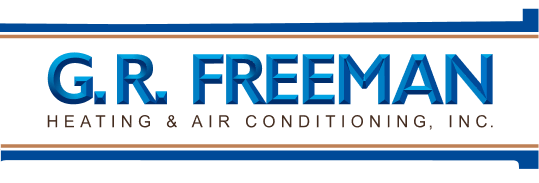Many people believe that heat pumps struggle in cold climates, but this is simply not true with modern units. New cold-climate heat pumps are more effective at handling extreme cold temperatures, thanks to advanced technologies such as variable-speed compressors.
With the addition of intelligent defrosting and improved refrigerants, heat pumps consistently perform, even in cold climates. G. R. Freeman Heating & Air Conditioning, Inc. in Evansville, IN, installs, maintains, and repairs cold-climate heat pumps. We help our customers stay warm with efficient heating systems.
How Heat Pumps Work in Cold Weather
Heat pumps are highly efficient because they only transfer heat rather than creating it. The latest models are changing the way homeowners view these systems.
Variable-speed compressors can adjust their speed according to the weather. These variable speeds enable heat pumps to work more efficiently in colder weather and scale back in milder temperatures. This feature allows for a steady, comfortable indoor temperature without energy spikes.
Additionally, cold-climate heat pumps now use specialized refrigerants with a lower boiling point. This matters because it allows them to vaporize and absorb thermal energy from the outdoors, even when temperatures drop far below freezing.
The latest heat pumps also include intelligent defrosting. Cold, humid weather causes frost to build up on outdoor coils. New units come with advanced sensors that initiate the defrost cycle only when necessary. Older systems defrosted on a timer, wasting energy when there was no frost accumulation.
G. R. Freeman Heating & Air Conditioning, Inc. understands local weather patterns and how our customers have struggled heating their homes with heat pumps in the past. We offer tailored solutions to help Indiana homeowners combat winter’s chill without draining their wallets.
Energy Efficiency and Cost Savings
Heat pumps use much less energy because they do not have to generate heat like gas furnaces or electric heating systems. They use electricity to power a system that moves heat from the outdoors and into your home.
The heat transfer process is much more efficient. According to ENERGY STAR, heat pumps can use up to 75% less electricity than traditional heating systems.
Although heat pumps are more expensive to purchase and install, they make up for the initial higher cost with long-term savings. They also may qualify for rebates and tax incentives. G. R. Freeman Heating & Air Conditioning, Inc. can help guide you towards the correct programs to help offset the cost.
Consistent Comfort Through Each Season
Variable-speed heat pumps deliver steady, even warmth without the need for frequent cycling. Instead of sudden blasts of hot air and fast shutdowns, they run almost continuously at a lower speed. Due to the longer cycle, heat pumps maintain indoor temperatures within a very narrow range.
Heat pumps reverse the heat transfer process in summer, moving hot air outside of your home and helping cool the indoors. Many Indiana homeowners install heat pumps because they offer heating and cooling without the need for separate units.
Environmental Benefits of Heat Pumps
Heat pumps reduce carbon emissions by using electricity rather than fuel. They are better for the planet and your family because they eliminate on-site leaks of harmful methane gas.
New heat pumps are also compatible with renewable energy sources such as solar power. Using high-efficiency heat pumps to heat and cool your home reduces strain on the grid, making them better for everyone.
Indoor Air Quality Advantages
Unlike a furnace, a heat pump does not rely on combustion. Instead, it moves heat through the home, keeping the air fresher. Its filters trap everyday irritants like dust and pet dander. With the addition of UV light and balanced humidity systems, the air feels lighter, cleaner, and healthier.
Choosing the Right Heat Pump
It’s essential to choose a heat pump that matches your home’s size and layout. Professional guidance from our HVAC professionals can make the selection process easier.
The industry measures heat pump size in BTUs. One ton equals 12,000 BTUs. Proper sizing ensures comfort without wasting energy or increasing wear and tear due to an inability to keep up with demands.
There are heat pump options for new construction and retrofit projects. Our professionals will guide you every step of the way and take care of all the details. We make heat pump installation a less stressful process.
Experience the Difference in Today’s Heat Pumps
Modern heat pumps keep homes warm even when temperatures drop. They cut energy costs and hold up for years with reliable performance. By lowering carbon emissions, they also help create a cleaner environment.
G. R. Freeman Heating & Air Conditioning, Inc. specializes in helping our Evansville customers select the right heating system for their needs. We take the time to assess each home, recommend the right equipment, and ensure it is properly maintained. Our team also helps you take advantage of financial incentives and rebates that make the switch more affordable.
If you are ready to explore the advantages of a heat pump installation in Evansville, contact our heating service professionals at G. R. Freeman Heating & Air Conditioning, Inc. today!








